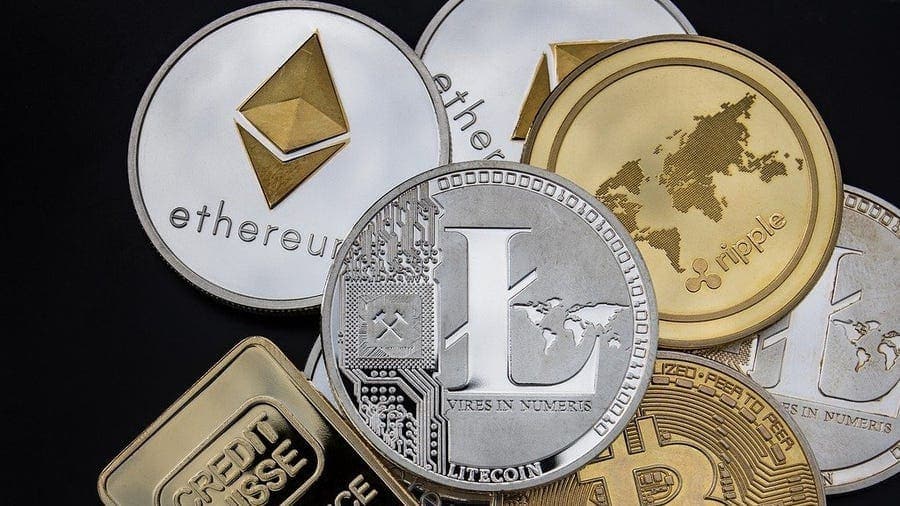
Top 12 cryptocurrency for investment in India 2023
Bitcoin functions independently of central banks and financial organizations. Cryptography and blockchain technology secure and decentralize transaction records.
Cryptocurrency investment has grown in India. Investors can trade cryptocurrencies online. Bitcoin, Ethereum, Litecoin, Ripple, and others are investments.
Understand the dangers and advantages of cryptocurrencies before investing. Bitcoin values can fluctuate rapidly, resulting in large profits or losses. It’s also crucial to choose a trustworthy cryptocurrency exchange.
Indian investors should also consider cryptocurrency regulation. The Indian government has not outlawed cryptocurrency despite warnings from the Reserve Bank of India. But, India’s cryptocurrency laws are still unclear, so it’s crucial to be informed.
Cryptocurrency investment is risky yet rewarding. Before investing, investigate, understand the hazards, and make educated judgments.
Cryptocurrencies have grown in popularity in India in recent years, with an increasing number of individuals investing in them.
The top 12 cryptocurrencies for investment in India as of 2023 are:
Bitcoin (BTC)-
Bitcoin (BTC) is a cryptocurrency for investment in India. Bitcoin, the earliest and most well-known cryptocurrency, remains the most popular choice for Indian investors. Bitcoin (BTC) is a cryptocurrency or decentralized digital currency. It was founded in 2009 by an unknown individual or group of individuals under the alias “Satoshi Nakamoto.” Bitcoin employs encryption to validate transactions and govern the production of new units on a peer-to-peer network.
One of Bitcoin’s distinguishing features is that it is decentralized, which means that it is not controlled by any government or financial entity. Transactions are recorded on the blockchain, a public database that provides openness and security.
Another essential aspect of Bitcoin is its scarcity. Because there will only ever be 21 million bitcoins, it is a deflationary currency. This indicates that as the demand for Bitcoin grows, its value will most certainly rise as well.
Bitcoin has a turbulent past, with its value shifting dramatically over time. It has been chastised for its links to criminal activities and for its excessive energy use. Yet, it has also been lauded as a potential answer to global challenges such as financial exclusion and inflation.
Ethereum (ETH) –
The second-largest cryptocurrency for investment in India by market capitalization, Ethereum has several applications other than simply digital money. Ethereum is a decentralized blockchain platform that developers may use to design and deploy decentralized apps (dApps). Vitalik Buterin founded the platform in 2015, and it is now the second-largest cryptocurrency by market value after Bitcoin.
Ether (ETH), Ethereum’s native cryptocurrency, is used to pay for network transactions and as a store of value. Ether is also traded on a number of cryptocurrency exchanges.
One of Ethereum’s most important features is its smart contract capabilities, which allows developers to design self-executing contracts that may be used to automate a variety of operations and transactions. This has allowed for the development of a diverse set of dApps on the Ethereum network, such as decentralized finance (DeFi) apps, non-fungible tokens (NFTs), and decentralized exchanges (DEXs).
Ethereum is also in the process of switching from a proof-of-work (PoW) to a proof-of-stake (PoS) consensus method, which will make the network more scalable, energy-efficient, and secure.
Overall, Ethereum has had a substantial impact on the development of the cryptocurrency and blockchain ecosystems, and its influence is expected to rise in the next few years.
Binance Coin (BNB) –
Binance Coin, the native cryptocurrency of the Binance exchange, has grown in popularity in India due to its utility in trading costs and discounts. Binance Coin (BNB) is a cryptocurrency for investment in India created by the prominent cryptocurrency exchange Binance in 2017. The BNB coin is an ERC-20 token that runs on the Ethereum network. BNB’s principal mission is to act as the native currency for the Binance ecosystem, which includes the Binance exchange and other Binance-related services. BNB may be used to pay for Binance exchange trading fees, as well as to purchase other cryptocurrencies and products and services from merchants who accept BNB.
Binance has offered various use cases for BNB, including the creation of the Binance Smart Chain, which works as a parallel chain to the Ethereum network and enables faster and cheaper transactions. Binance has also introduced a number of new services, including Binance Launchpad, which lets users participate in token sales, and Binance Savings, which allows users to earn interest on their BNB holdings. BNB is one of the greatest cryptocurrencies by market capitalization as of April 2023, with a total market worth of more than $100 billion USD.
Cardano (ADA) –
Cardano (ADA) is a cryptocurrency for investment in India. Cardano, a third-generation blockchain technology, has gained traction in India because of its emphasis on scalability, sustainability, and security. Cardano (ADA) is a blockchain platform developed in 2015 by Ethereum co-founder Charles Hoskinson. It intends to provide a more secure and scalable environment for the development of decentralized apps (dApps) and smart contracts.
Cardano employs a proof-of-stake consensus process, allowing ADA holders to participate in network governance and earn incentives for network security. To boost efficiency and flexibility, it also employs a novel two-layer design that separates the settlement and computing levels.
The Cardano ecosystem comprises a variety of organizations and activities focused on platform research, development, and adoption, such as the Cardano Foundation, IOHK (Input Output Hong Kong), and Emurgo.
Cardano’s own coin, ADA, is used for transactions and to pay network fees. Because of its powerful technology, active community, and rapid use in numerous industries, it has acquired recognition as a viable investment.
With the debut of its main net in 2017 and the ongoing development of the Alonzo update, which will allow smart contract capabilities on the platform, Cardano has made great progress in recent years. It aspires to be a premier platform for decentralized finance (DeFi) and other applications.
Dogecoin (DOGE) –
Initially designed as a joke, Dogecoin has developed a cult following in India and is frequently used for tipping and micropayments. Dogecoin (DOGE) is a cryptocurrency for investment in India developed by software programmers Billy Markus and Jackson Palmer in 2013. It is based on the popular internet meme of the Shiba Inu dog, which serves as the cryptocurrency’s official mascot.
Dogecoin, which was created as a joke, has risen in popularity and has a committed community of followers. It is frequently used for tiny transactions, such as tipping social media content providers.
Dogecoin’s inflationary supply is one of its distinguishing features. In contrast to Bitcoin, which has a limited quantity of 21 million coins, Dogecoin has no such restriction. Nevertheless, the annual pace of coin manufacture is limited to 5 billion coins.
Dogecoin’s price has been volatile, with big price rises and drops over short periods of time. Celebrity endorsements and social media attention have also contributed to its success.
Ultimately, Dogecoin is a speculative investment that, like any cryptocurrency, should be treated with caution.
Ripple’s XRP (XRP) –
Ripple’s XRP (XRP) is a cryptocurrency that is frequently used for cross-border payments and remittances. Ripple’s XRP cryptocurrency was launched in 2012 by Ripple Labs as a digital asset for worldwide payments and settlements. Unlike other cryptocurrencies such as Bitcoin, XRP is not mined, and its full quantity of 100 billion tokens was produced at the time of its launch.
XRP is utilized by financial institutions and payment providers to settle transactions on RippleNet, Ripple’s worldwide payments network.
One of the most significant advantages of XRP is its speed and scalability since it can settle transactions in seconds and handle thousands of transactions per second. Moreover, XRP has a low transaction cost, making it an appealing alternative for anyone wishing to transfer significant sums of money across borders.
Nevertheless, in recent years, XRP has come under regulatory attention, with the US Securities and Exchange Commission (SEC) bringing a lawsuit against Ripple Labs in December 2020, alleging that XRP was an unregistered security. This has resulted in certain exchanges delisting or stopping XRP trade, however, the matter is still continuing.
Polkadot (DOT) –
Polkadot is a multi-chain network that enables interoperability across multiple blockchains. It has garnered popularity in India due to its potential to overcome scalability and interoperability difficulties. Polkadot (DOT) is a blockchain protocol created for the future generation that aims to unite various blockchains with specific functions into a unified network. It intends to do this by developing a blockchain environment that is both scalable and interoperable. This will make it possible for various apps and platforms to communicate with one another, share data, and work together. Polkadot employs a one-of-a-kind consensus method known as GRANDPA, which permits speedy finality while maintaining a high level of security. In addition to this, it features a governance framework that gives stakeholders the opportunity to take part in decision-making and suggest modifications to the protocol. The Polkadot network was developed with the intention of supporting a diverse array of use cases. These use cases include decentralized finance (DeFi) and gaming, as well as supply chain management and identity verification.
SOL (Solana) –
Solana, a high-speed blockchain platform that enables rapid and low-cost transactions, has gained traction in India because of its potential use cases in gaming and NFTs.Solana (SOL) is a decentralized blockchain network built for high performance (dApps). Its goal is to give developers a scalable, fast, and secure network on which to build. Solana employs a novel consensus technique known as Proof of History (PoH), which allows for quick transaction confirmation times and high throughput, with the ability to execute up to 65,000 transactions per second. In addition, the platform has cheap costs and supports a range of programming languages, making it easier for developers to design and distribute apps. SOL is the Solana network’s native money, used to pay transaction fees and participate in network governance. Decentralized exchanges, stablecoins, and gaming applications are among the initiatives in the Solana ecosystem.
Chainlink (LINK) –
Chain Link is a decentralized oracle network that connects smart contracts to real-world data. It has garnered traction in India due to its ability to improve the functioning of decentralized apps. Chainlink (LINK) is a decentralized oracle network aimed at connecting smart contracts to real-world data. Oracles are used to give data to smart contracts, which are self-executing contracts with the conditions of the buyer-seller agreement put directly into lines of code. Without depending on a single centralized source, Chain Link enables smart contracts to safely access off-chain data like market prices, weather data, and other pertinent information.
The LINK token is used as a cryptocurrency for investment in India and as collateral to ensure the accuracy of the data given by the oracles. Chain Link has decentralized Oracle relationships with several blockchain projects, including Ethereum, Polkadot, and Tezos.
Chain Link has grown in popularity among developers owing to its safe and dependable oracle services, which are required for developing decentralized financial (DeFi) apps. The initiative has a large community and has gained backing from a number of investors and institutions. The LINK token has a market valuation of more than $50 billion as of April 2023, ranking among the top ten cryptocurrencies by market capitalization.
Litecoin (LTC) –
Created as a lighter and speedier counterpart of Bitcoin, Litecoin is frequently used as a digital currency for everyday transactions. Litecoin (LTC) is a cryptocurrency for investment in India that, like Bitcoin, runs on a peer-to-peer network. Charlie Lee, a former Google employee, designed it in 2011 as a “light” version of Bitcoin with the goal of offering quicker transaction speeds and reduced costs.
One of Litecoin’s distinguishing characteristics is its use of the Scrypt hashing algorithm, which is less susceptible to mining using specialist gear (ASICs), making it more accessible to the ordinary computer user.
Litecoin has a maximum quantity of 84 million coins, which is four times that of Bitcoin, and a block period of 2.5 minutes as opposed to Bitcoin’s 10 minutes, which implies transactions may be verified more quickly.
Although having a lower market capitalization than Bitcoin, Litecoin remains one of the most popular cryptocurrencies and is widely recognized by retailers and exchanges. It also acts as a testing ground for additional features that may be added to the Bitcoin network in the future.
Uniswap (UNI) –
A decentralized exchange that enables peer-to-peer cryptocurrency trading, Uniswap has grown in popularity in India because of its emphasis on decentralization and community control. Uniswap (UNI) is a blockchain-based decentralized exchange (DEX). It enables users to exchange bitcoins without relying on a central authority or an intermediary. To offer liquidity for trading pairs, Uniswap employs an automated market maker (AMM) technology that employs smart contracts.
The UNI token is the Uniswap platform’s native cryptocurrency for investment in India, and it is used to incentivize liquidity providers to provide funds to liquidity pools. Liquidity providers gain fees from transactions executed on the platform, and they are compensated with a share of the trading fees.
The maximum quantity of UNI tokens is one billion, with around 530 million presently in circulation. Since its inception in September 2020, cryptocurrency has grown in popularity in the decentralized finance (DeFi) market, and its value has surged dramatically. With a market worth of more than $13 billion as of April 2023, UNI is among the top 20 cryptocurrencies by market capitalization.
Avalanche (AVAX) –
Avalanche is a blockchain platform that promises to overcome scalability and interoperability challenges in blockchain technology. It has gained traction in India because of its potential use cases in DeFi and NFTs.Avalanche (AVAX) is a high-performance blockchain technology that allows for quick, safe, and decentralized applications. The platform is created with Avalanche, a revolutionary consensus algorithm that can handle thousands of transactions per second while preserving high levels of security and decentralization.
AVAX is the native cryptocurrency of the Avalanche network, and it is used to transfer value and pay transaction fees. Solidity, the language used for Ethereum-based smart contracts, is supported by the platform, making it simple for developers to move their apps to Avalanche.
Avalanche’s subnets are a major feature that allows developers to design their own unique blockchains with their own consensus procedures and transaction fees. This increases the flexibility and scalability of decentralized applications.
Avalanche has already attracted a number of high-profile partners and initiatives, including Chainlink, The Graph, and Circle. AVAX’s price has also increased significantly in recent months, with its market capitalization reaching more than $10 billion by April 2023.
Conclusion:
Bitcoin, Ethereum, and Litecoin are popular investments. Cryptocurrency is volatile and hazardous. Before investing in Bitcoin, investigate and understand the hazards.
India has yet to regulate cryptocurrency use or investment. India’s Bitcoin users face uncertainties and obstacles due to the Reserve Bank of India’s cryptocurrency prohibition.
Despite this, cryptocurrency is rising in popularity in India, and various exchanges and platforms allow users to trade and invest in it. Do your study, understand the dangers, and only invest what you can afford to lose before investing in cryptocurrencies.
In conclusion, cryptocurrency may offer investing opportunities, but investors should be cautious and weigh the dangers. Before investing, get financial counsel.
Overall, the top 12 cryptocurrencies for investment in India in 2023 represent the market’s diversity, with a variety of platforms and tokens catering to various use cases and consumer preferences.
Related Posts
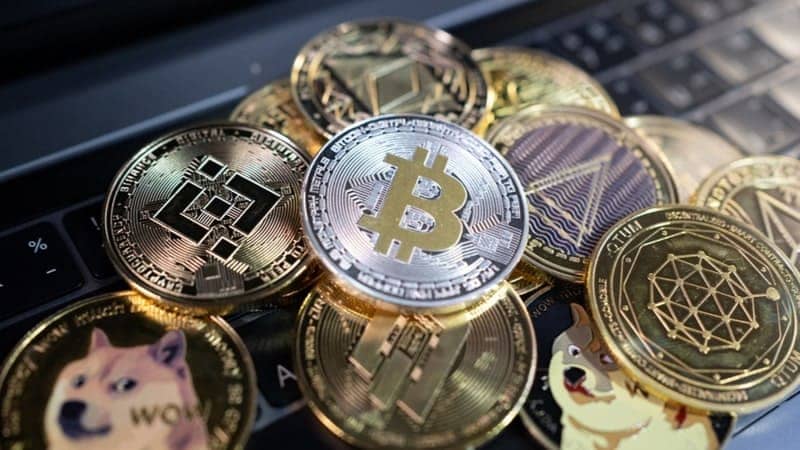
How to Choose the Best Cryptocurrency to Invest in Indiaadmin . April 24, 2023

Best Canadian Penny Stocks to Buy Right Nowadmin . February 12, 2024

The Top Reasons Why You Should Invest in Mutual Fundsadmin . August 14, 2023

Top Choices for Home Loans in Indiaadmin . May 24, 2022

What Function Does Cryptocurrency Play in Fintech?admin . January 28, 2022
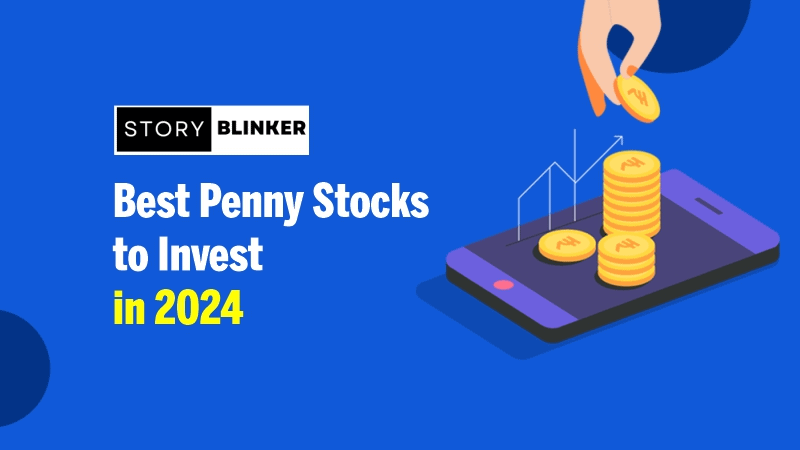
Top 10 best penny stocks to invest in 2024admin . November 22, 2023

Discover Upcoming IPOs in Canada 2024 | Latest Listings andadmin . February 13, 2024

What is Cryptocurrency and How Does it Work?admin . March 31, 2023
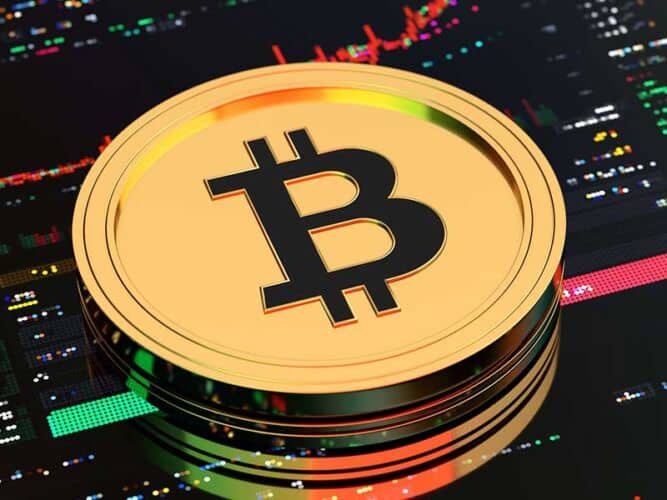
A Few Pointers to Help You with Your First Cryptocurrencyadmin . January 28, 2022
Latest Posts

Exploring the Best Cash Advance Apps of 2024 April 8, 2024

Top 34 Passive Income Ideas in 2024 March 19, 2024
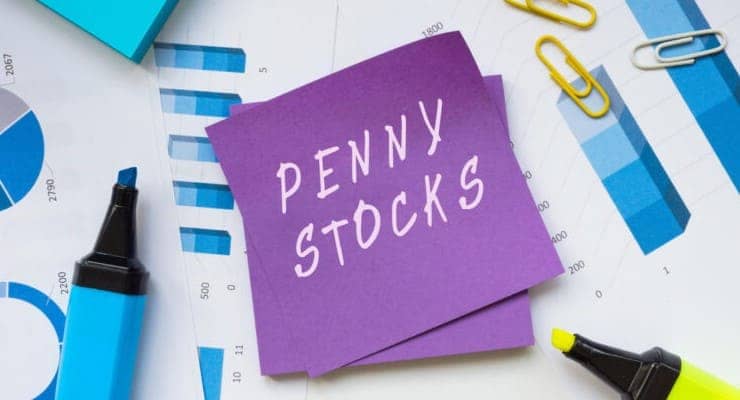
Top 10 Penny Stocks to Buy Canada 2024 February 23, 2024

Best Canadian Artificial intelligence stocks under $1 2024 February 23, 2024

Top Artificial Intelligence Stocks Canada 2024 February 20, 2024

